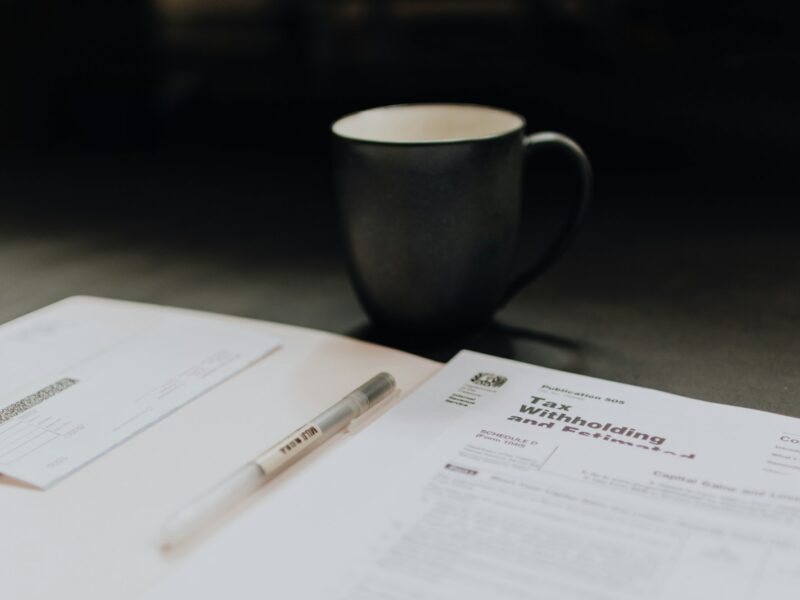When the Federal Reserve raises interest rates, as it did recently, it can directly impact your auto loan. The good news is that there are some things you can do to keep your loan payments manageable, even after a rate hike.
A Handful of Tips for Saving Money on Your Auto Budget
With unstable economic times ahead, it can be easy to panic when the fed raises interest rates, but you should know there are ways to save and shift your budget to make it possible to buy a new, or new to you, car. Here are some tips and tricks to find the best car loan rates, and secure your financial stability along the way.
Shop Around and Compare Rates
Although the Federal Reserve has recently raised interest rates, that doesn’t mean all lenders will follow suit. Some banks and credit unions may still offer competitive rates on auto loans, so it pays to shop around. Keep in mind that the length of the loan and the type of vehicle you’re buying can also affect the interest rate.
In general, longer loans and luxury vehicles tend to have higher rates. However, you may be able to negotiate a lower rate by making a larger down payment or agreeing to a shorter loan term. By researching and shopping around, you can ensure that you get the best possible deal on your car loan.
Reduce the Length of the Loan
When you’re taking out a loan, it’s crucial to consider your decision’s long-term effects. A shorter loan term will mean higher monthly payments, but you’ll save money on interest in the long run. In addition, a shorter loan term will help you to become debt-free more quickly.
As a result, it’s essential to weigh the pros and cons of a shorter loan term before making a decision. If you’re unsure what to do, speak to a financial advisor who can help you make the best decision for your situation.
Increase Your Down Payment
If you’re planning to finance a purchase, you must consider how much you’ll need to borrow. One factor that can impact the amount you need to invest is your down payment, and larger down payment could lead to a lower interest rate and reduce the amount you need to finance.
Sometimes, a larger down payment could also help you avoid paying private mortgage insurance. When making plans for your down payment, consider how much money you’ll need for other expenses, such as closing costs. By considering all of these factors, you can ensure that you’re making the best decision for your financial situation.
Budget Carefully
It’s no secret that a new car can be a financial stretch for many people. But it’s essential to keep your long-term financial security in mind when buying a new car. That’s why it’s necessary to make sure you can comfortably make your loan payments without straining your budget.
You don’t want to put yourself in a position where you’re struggling to make ends meet because you’re overstretched financially. So, before you sign on the dotted line, do your homework and ensure that a new car is your right financial decision.
Secondary Car Costs to Consider
When considering buying a new car, it’s essential to consider all the associated costs. In addition to your monthly loan payment, you’ll need to budget for vehicle insurance, maintenance and repairs, registration and license fees, and fuel costs. Considering all these factors, you can get a realistic idea of how much a new car will cost you each month.
This information can help you make a more informed decision about whether or not a new car is right for you. Remember that even if a vehicle is within your budget, it may not be the best choice if it doesn’t fit your needs. For example, a small car might be more affordable than a larger one, but it may not have enough space for your family or all your gear.
3 Bonus Ways to Save Money on Your Car Budget
- Take Public Transit When Possible: If you live in a city with good public transportation, take advantage of it! Ditching your car even just a couple of days a week can save you money on gas, parking, and vehicle maintenance costs.
- Carpool When You Can: If you have a long commute, see if there’s someone you can carpool with. Not only will this save you money, but it can also be a great way to make the time pass quicker.
- Buy Used When Possible: If you’re not set on buying a new car, consider purchasing a used one instead. You can often get a great deal on a gently used vehicle, and you’ll avoid the rapid depreciation that new cars experience.
- Learn How to Do Your Maintenance Tasks on Your Own: Finally, one of the best ways to save money on your car is to learn how to do your maintenance tasks. This can include changing your oil, rotating your tires, and checking your fluids. You can avoid expensive trips to the mechanic by taking care of these tasks. By following these tips, you can ensure you’re getting the best deal on your auto loan.
Ultimately, the best way to decide if a new car is right for you is to carefully consider the associated costs and how they fit into your budget.
Following these tips can make your auto loan payments manageable, even after a Fed rate hike.



